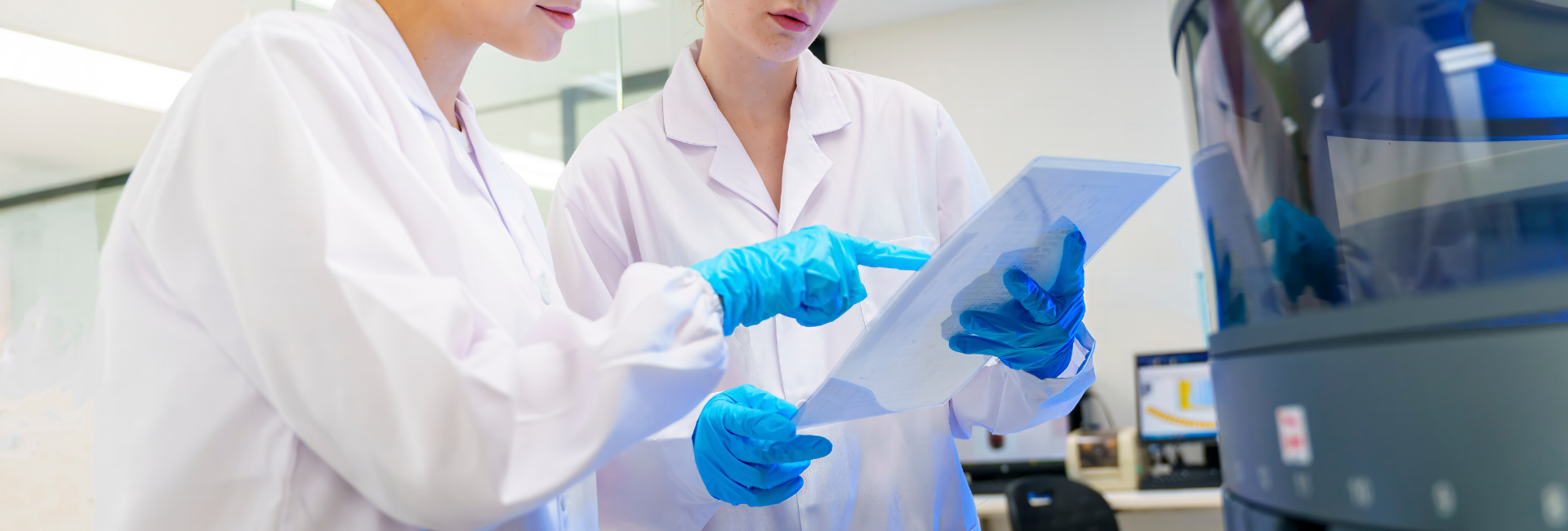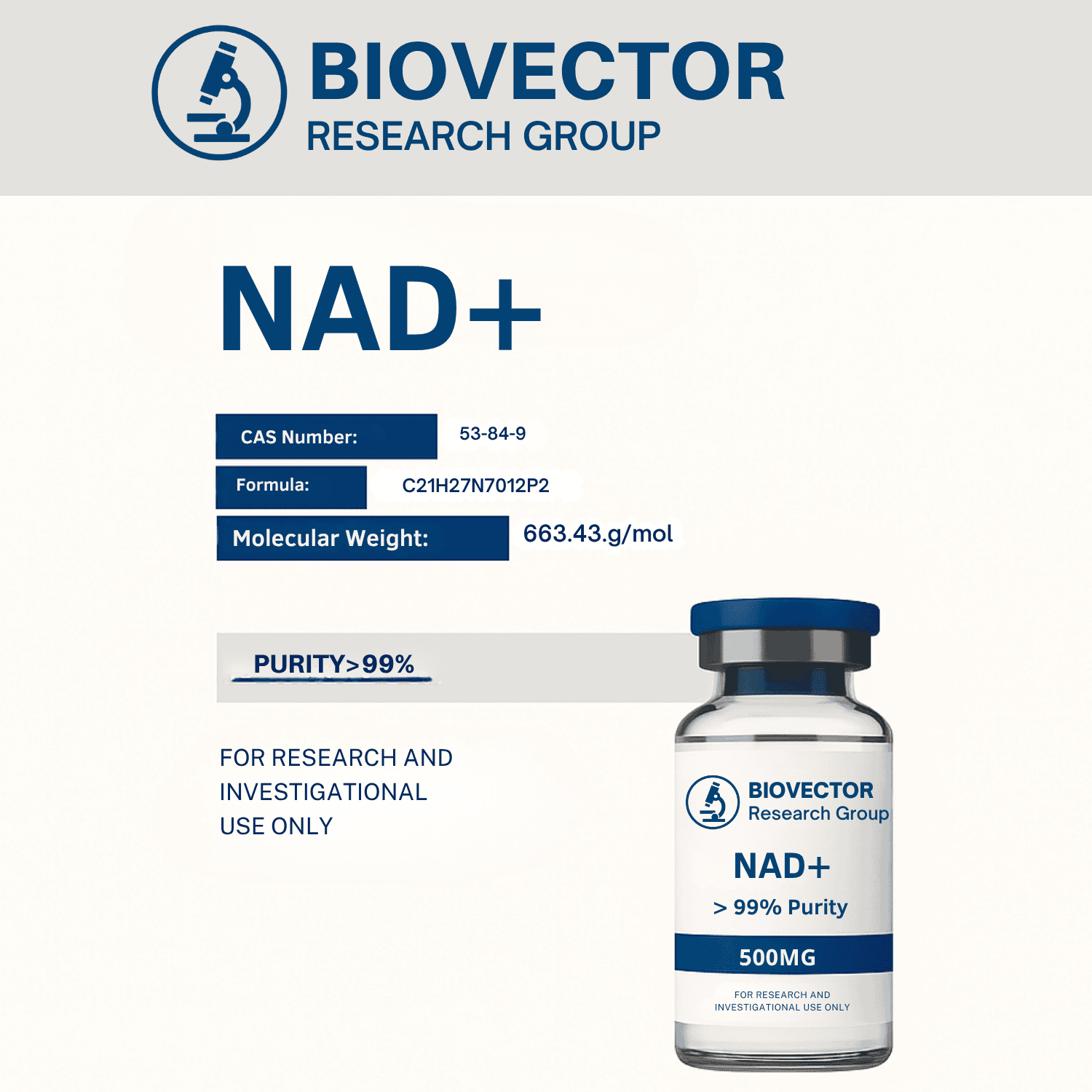NAD⁺ Research Overview — Nicotinamide Adenine Dinucleotide in Cellular Metabolism Studies
Disclaimer: This article is intended solely for laboratory and educational discussion. NAD⁺ and related compounds are provided for research use only and are not approved for human, veterinary, or diagnostic purposes. Nicotinamide Adenine Dinucleotide (NAD⁺) is a naturally occurring coenzyme found in all living cells, essential to redox reactions and energy metabolism. It serves as a critical cofactor for dehydrogenase enzymes involved in glycolysis, the citric acid cycle, and oxidative phosphorylation. NAD⁺ alternates between oxidized (NAD⁺) and reduced (NADH) forms to maintain metabolic balance and cellular homeostasis. (PubChem) Research has focused on NAD⁺’s role in mitochondrial function, DNA repair, and sirtuin activation. Laboratory studies demonstrate its central function in regulating oxidative stress responses and cellular longevity pathways through SIRT1–SIRT7 enzyme activation and PARP-mediated DNA repair. (PubMed Review) (NIH/PMC) Recent studies have explored NAD⁺ precursors such as nicotinamide mononucleotide (NMN) and nicotinamide riboside (NR) for comparative evaluation of their biosynthetic conversion pathways in vitro. These models help researchers study NAD⁺ metabolism, cellular energetics, and age-related redox imbalance under controlled, non-clinical conditions. (PubMed Study)Key References
- PubChem Compound Summary — pubchem.ncbi.nlm.nih.gov/compound/NAD
- Yoshino et al., “NAD⁺ Metabolism and Cellular Aging,” Cell Metabolism (2018) — pubmed.ncbi.nlm.nih.gov/29721009
- Rajman et al., “Therapeutic Potential of NAD⁺ Metabolism in Aging and Disease,” Nature Reviews Molecular Cell Biology (2019) — pubmed.ncbi.nlm.nih.gov/30799270
- Shats et al., “Regulation of NAD⁺ Biosynthesis and Redox Homeostasis,” Frontiers in Cell and Developmental Biology (2021) — pubmed.ncbi.nlm.nih.gov/34312699
BioVector Research Group provides NAD⁺ and related coenzymes exclusively for controlled laboratory and research use. Not for human consumption or therapeutic application.


